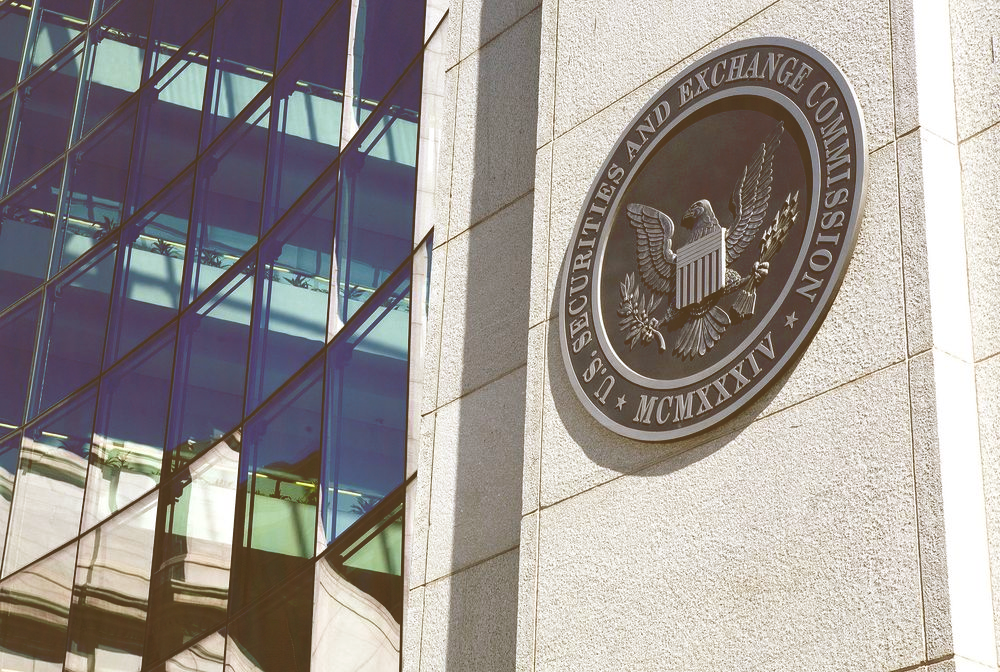
With all the buzz surrounding crypto, you might be wondering if it’s time to consider seriously including it in your investment portfolio—and you wouldn’t be the only one …
Crypto has gone from Internet obscurity to becoming mainstream and more widely accepted as a digital asset. In fact, due to client demand, respected Wall Street investment bank Morgan Stanley announced in March 2021 that they would be offering exposure to the most popular crypto option: Bitcoin.
Given Bitcoin’s enormous surge in value over the past few years, it’s easy to see why conventional investors want in on the action. Back in December of 2018, you could buy one Bitcoin for $3,237. As of February 16, 2021, each Bitcoin was valued at over $50,000 for the first time (although its value fluctuated above and below this mark throughout the month). That’s unthinkable when you consider the fact that one Bitcoin originally cost just $0.08 when it started only 13 years ago. However, keep in mind that it hasn’t been all smooth sailing, and Bitcoin has seen considerable ups and downs over the years.
While it seems like there’s no limit to how high crypto can go, could all of this excitement be nothing more than just hype? Social media is jam-packed with stories from people who’ve become crypto millionaires almost overnight. But history has also taught us that no asset can rise in price forever without eventually leveling out to its natural value.
In this post, we’ll explore some of the unique attributes of crypto and how it might fit into your overall investment strategy. But before that, let’s make sure we understand what exactly crypto is and how it works.
What is crypto?
Cryptocurrency, or crypto as it's often called, is simply a digital form of currency. Its original intention was to be an alternative way to buy goods and services (similar to the money you use now). However, crypto is now often used by investors as a way to hedge against inflation or as a speculative investment.
Unlike traditional currency, which is minted and produced by a government institution, there are no physical crypto coins anywhere. They only exist in digital form.
Cryptocurrency is built on what’s called blockchain technology. This is a decentralized, open ledger of recorded balances and transactions. To put it simply, crypto is nothing more than just code.
Many people tend only to associate cryptocurrency with Bitcoin. However, Bitcoin is just the most well-known version. There are actually over 5,000 different types of cryptos such as Ethereum and Litecoin. These other types of crypto are often referred to as “altcoins.”
What gives crypto its value?
The short answer: You do.
Currency issued by the U.S. Government (called fiat currency) is backed by the full faith and credit of the Government. Decades ago, it used to be backed by gold, but this is no longer the case.
Collectively, just like the cash in your pocket is really nothing more than paper and gold is just a shiny rock, these things hold value because society believes they do. We know that we can exchange them for goods, services, or money, so, therefore, they’re worth something to us.
This is also the idea behind crypto. There's no government or private entity that controls the value of most cryptocurrencies (except for an alternative class called “stablecoins”). Its price is determined by market demand. As long as people and businesses invest and use crypto, then it will possess value.
Is crypto safe?
Upon first thought, you might think that a currency built entirely upon a digital ledger with no central authority would be a breeding ground for thieves and hackers. If all it takes is for one line of code to be altered, then surely someone could hack the system and steal everything you have, right?
The creators of cryptocurrency anticipated this and came up with a creative solution. Using Bitcoin as an example, theft is prevented using something called miners.

At a high level, miners are a worldwide network of computers that voluntarily work to validate all Bitcoin transactions. They do this by adding a new group of transactions (called a block) onto the existing chain of past blocks every few minutes (hence the name blockchain).
There are hundreds of crypto miners working to validate new blocks at all times. To be the miner who gets to add the new block, they must first solve a complex mathematical problem. This is not easily accomplished without a tremendous amount of computational and electrical resources.
As miners add the new transactions, they are also checking the inputs of the open ledger to ensure the transaction has not taken place before. If it has, then the transaction will not go through. Because the ledger is open source, it’s virtually impossible to change a previous block in the chain.
In addition to validating transactions, miners also introduce new cryptocurrencies into circulation (hence the name). As a reward for their resources, miners are given 6.25 Bitcoins (as of November 2020) for each new block of transactions. This number is cut in half every four years to help preserve the crypto’s scarcity.
What are the benefits of using crypto?
In addition to achieving popularity with investors, there are also many practical reasons why someone would want to use crypto over other forms of currency.
- Decentralization. Because crypto’s value is determined by the market and was designed to operate without political intervention (though governmental regulation does certainly influence the price), it can be viewed as more stable–especially to people in countries where the currency has become extremely unstable.

- Accessibility. Anyone with an Internet connection can access cryptocurrency. There are no bank holds or wage garnishments. Although it’s worth noting that in the U.S., you do have to report your transactions to the IRS for tax purposes.
- Removes the need for a bank. Traditional banking always involves a financial institution playing the middleman for any given transaction. As a result, they charge a fee for this service. But with crypto, the intent is for transactions to be peer-to-peer. You can send money to anyone without a bank for a fraction of the current fees.
- Autonomy. Even though the entire ledger of crypto transactions exists publicly, the user is only identified by a series of codes. Unless someone knows your specific code, they won’t directly trace the transaction back to you. Although many people in countries around the world can use crypto with complete anonymity, exchanges servicing U.S.-based clients are required to verify the identity of their users. In addition, these platforms also must report certain activities to the IRS, FinCEN, and other regulators.
What are the risks of crypto?
Even with the design of blockchain and the process of miners working to validate every crypto transaction, it is still not a fool-proof system. As with any currency or investment, you still may be at risk for the following:
- Loss. As we’ll talk about more, later on, using your crypto will require the use of a private key or password to your digital wallet. If you lose or forget either, then you will not be able to access it.
- Theft. If someone were to gain access to your private keys or passwords, they might transfer your entire account into their own wallet. Because of autonomy, the transaction likely would not be traceable back to any person or company, and probably no government agency could help you get it back.
- Scams. Just like people fall victim to email phishing scams, you could be tricked out of your private key or send crypto to a charity or person that doesn’t really exist. There's also the potential that you might invest in a cryptocurrency that's actually a fake company or fraud.
- Regulatory risk. Although crypto intends to operate outside government control, that doesn’t mean that it’s free of regulation. Some countries have taken steps to regulate or even outlaw Bitcoin altogether. The more governments restrict its use in the future, the less desirable it could be to hold and use crypto, at least in some jurisdictions. This could influence its price negatively. On the other hand, increasing regulation could instead cause people and institutions to trust crypto more and use it comfortably and legally, therefore increasing adoption and popularity. The effects of increasing regulation are highly uncertain.

Should I invest in crypto?
Before deciding to make crypto a part of your portfolio, you’ll want to think about how it can help further your overall investment strategy. As with all assets, there are generally two main reasons to consider getting involved.
1. Increasing value
For the majority of investors, the primary attraction to crypto has been its dramatic rise in value. Many cryptocurrencies have seen considerable increases in value as they have earned more public adoption and market share. Just keep in mind that price increases could also be - and have been, especially in the case of cryptocurrencies - followed by sharp declines.
However, it’s important to remember what cryptocurrency is and how this might impact its long-term earnings potential.
While some cryptocurrencies may hold themselves out as representing a share of ownership in a project or company, in most cases you will not have the same level of transparency, regulatory reporting, and oversight, industry analysis, or confidence that the company truly exists and will continue to drive shareholder value, as you would if you invest in a public company. As of the time this article was written, regulators such as the Securities and Exchange Commission (SEC) are still determining whether or not the use of cryptocurrencies in corporate financing would fall under their jurisdiction over securities activities. Similar to other forms of currency, for the most part, the only way you can make money from crypto is to get someone else to buy from you for more than you paid.
So why has Bitcoin increased in value so much over the past decade? Several developments have helped to elevate its demand:
-
- Media attention. You don’t have to look very far to find an article or social media post about Bitcoin.
- Social acceptance. The next time you pay for something online or at the store, you might notice that the merchant will now accept Bitcoin as a form of payment. As big names like Microsoft, Home Depot, Starbucks, and many others jump on the bandwagon, this helps make it more mainstream and promote its collective validity.
- Usage as utility tokens. Not all cryptocurrencies are strict currencies or stores of value, like Bitcoin. Some are utility tokens that are used for specific purposes on a platform or a series of platforms.
- Ownership in a project or company. Sometimes crypto has been treated like shares of ownership in a project or company. Traditionally companies like this were mainly financed through the sale of securities. However, many new companies in the crypto space, especially blockchain and technology-focused companies, have found it easier to issue cryptocurrencies to raise money to fund their projects through an “initial coin offering” (ICO).
- Newly emerging industries. Some people are banking big (pardon the pun) on nascent industries that exist solely in the world of blockchain and cryptocurrency. One example is the relatively new world of DeFi (or decentralized finance), which has attracted even famous investors and startup enthusiasts such as Mark Cuban. In DeFi, the goal is to replace many of the functions traditionally performed by banks, thus allowing individuals to perform their financial activities in new ways which could be more profitable, with lower fees, amongst other possible benefits. If these bold initiatives create or disrupt entire industries, they could greatly contribute to the value and utility of crypto.
- Media attention. You don’t have to look very far to find an article or social media post about Bitcoin.
Will these trends continue? The future is always uncertain…
Many critics of crypto are quick to declare it as nothing more than a bubble. Just like in the years before the dot-com bust of 2001, investors were enthusiastic about the growth of the Internet and the potential of e-commerce. Massive amounts of money were pumped into start-ups that had no strategy or fundamentals to produce profits. As a result, the bubble eventually burst and sent the market crashing to its pre-bubble values.
In finance, this is a phenomenon called mean reversion. It suggests that assets will eventually return to their long-run mean or true level of market value. To put it simply: What goes up must eventually come down.
However, many big-name supporters of crypto are optimistic about its long-term sustainability and potential for the future. In January 2021, Deutsche Bank released a statement saying that digital currencies “could become mainstream within the next two years.” As with all new things, only time will tell.
2. Hedge against inflation
Perhaps one of the more appealing (and often overlooked) benefits of investing in certain assets is their ability to protect against inflation.
Remember that with cash, its value is eroded over time. If you were to bury money in your backyard and dig it back up in 10 years, that money would have less purchasing power than it did previously due to inflation.
Traditionally, investors have looked to precious metals like gold or silver to store positions of wealth and protect it from political manipulation. This is possible because precious metals have scarcity and market demand. In some ways, cryptocurrencies could be used to serve the same purpose too.
When governments need more money (such as the COVID relief packages), they put more of it into circulation. This can help to boost the economy temporarily, but it inherently lowers the current spending value of the currency.
By contrast, with a cryptocurrency like Bitcoin, it was stipulated in its source code that only 21 million would ever be produced. This means no government or agency can ever make more when they need to boost the economy artificially. Bitcoin’s quantity will always remain finite.
This is a significant distinction. While the value of traditional currencies will erode as their supply saturates, Bitcoin (much like gold) will retain value for as long as there's market demand. Of course, government regulation or other existential threats could greatly affect its price and demand.
How do I buy cryptocurrency?
If you’d like to buy cryptocurrency, it's relatively straightforward to do. The main tools you’ll need are:
- An internet connection
- A cryptocurrency exchange platform
- Method of payment
- A digital wallet (optional)
There are many different cryptocurrency exchanges. All the ones servicing U.S. customers must use what’s known as KYC (know your customer) programs that will verify your identity.
It’s worth noting that worldwide (and even sometimes in the US, despite regulation dictating otherwise), some platforms do not require KYC (keeping with the theme of anonymity). However, they will also have the highest likelihood of attracting undesirable clientele such as criminals and black-market users who need a way to transfer money outside of conventional systems.
In the United States, the most popular platforms which perform KYC in compliance with regulations include Coinbase, Binance.US, and Gemini. Some relatively new stock-trading platforms like Robinhood, TradeStation, and eToro are also beginning to offer crypto.
 After purchasing cryptocurrency, you have two options:
After purchasing cryptocurrency, you have two options:
- You can leave it in your brokerage account
- You can move it to your digital wallet
Each option carries its own benefits and risks. For instance, moving your crypto to a digital wallet may provide some defense if you think there's a chance that the crypto exchange could potentially get hacked. But can you also trust yourself not to lose, misplace, or mistakenly share the private key to your wallet?
It’s also worth noting that not all exchange platforms will have this option.
If all of this seems too confusing or complicated, then you might want to consider a more traditional route and invest in an ETF (exchange-traded fund) that specializes in blockchain-related technologies (upon which cryptocurrencies are built). Like how precious metal ETFs work, these ETFs are funds that provide investors with exposure to the industry. However, you wouldn’t actually own any crypto yourself.
Just remember, investments in ETFs involve risks, including the possible loss of principal, and may be subject to additional fees and tax considerations. Shares may be worth more or less than your original investment when redeemed. Be sure to do your homework and read the offering documents carefully before investing.
The bottom line
Cryptocurrency like Bitcoin may be all the rage right now. But like all investments, you’ll want to understand what crypto is and its potential among other currencies before you get involved financially.
While Bitcoin has exploded in value over a relatively short amount of time, there's still much debate about where it will go next. Some critics see its rise in price as nothing more than speculation or possibly a bubble. However, others, including some big-name investors, are more optimistic and see it as the way of the future.
In addition to increasing prices due to greater demand and speculation, some savvy investors will recognize that crypto might also be a useful store of value. While other traditional forms of currency may erode due to inflation and political manipulation, crypto could potentially have value for as long as it stays in demand by the market.
Crypto, however, is not risk-free. Like traditional forms of currency, it can be susceptible to theft, scams, and even loss. Even though crypto is designed to be decentralized, continually rising government regulation will certainly influence its usability in the future.
As with any new investment, it all comes down to what you believe will happen next. Remember to investigate your options and listen to arguments from both sides of the fence before making any purchases.
While we have provided some general information as a starting point, this article is not intended as specific advice or recommendations for any individual. Investments in cryptocurrencies are subject to extreme volatility, pricing variations and may not be suitable for all investors. Consider enlisting the help of a financial advisor to see if an investment in crypto makes sense for you.
About Learn
Financial advice for real people, by real people. You shouldn't need a degree to understand your money. Join Altruist mentors as they break down financial tips and strategies in a real way to help you finally understand how to achieve your financial goals faster.

